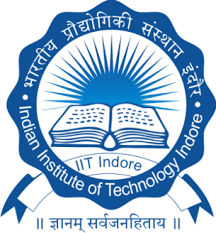The Indian Institute of Technology, Indore (IIT-I) has developed a groundbreaking Quantum AI nanotechnology designed to detect genetic mutations—including those linked to cancer—with remarkable speed, accuracy, and cost-efficiency.
AI-Powered Breakthrough in DNA Sequencing
A team led by Professor Biswarup Pathak, along with Dr Sneha Mittal and Dr Milan Kumar Jena from IIT-I’s Department of Chemistry, used advanced artificial intelligence algorithms to decode raw electrical signals produced during DNA sequencing.
Unlike conventional methods, this approach offers unmatched accuracy and faster results, while significantly lowering the cost of genetic analysis.
Combining Quantum Transport and Explainable AI
As reported by TOI, this revolutionary technology merges quantum transport mechanisms with explainable AI. It achieves high-resolution, real-time, and unified DNA sequencing. According to IIT-I’s official statement, it supports not just traditional genetic analysis but also natural, epigenetic, and artificial DNA sequencing—all on a single platform.
A Game-Changer for Cancer Diagnostics and Personalised Medicine
Professor Pathak emphasized the impact of the invention, stating:
“This technology has transformative implications for genomics, personalised medicine, and cancer diagnostics. It enables early detection of genetic mutations and cancerous changes, paving the way for more effective and personalised treatment strategies.”
By delivering precise genetic information across diverse genomic contexts, this innovation is expected to empower researchers and clinicians with a powerful diagnostic and treatment-planning tool.
Addressing the Limitations of Traditional Sequencing
Traditional DNA sequencing methods such as Sanger sequencing and short-read next-generation sequencing (NGS) often fail to detect complex genetic variations, including structural mutations and epigenetic modifications.
These limitations hinder the comprehensive understanding of genetic disorders and cancer, according to the institute.
Quantum-AI Technology Offers Superior Resolution
IIT-I Director, Professor Suhas Joshi, explained that traditional methods are limited by short read lengths, which may overlook critical genomic information. In contrast, the new technology employs solid-state nanopore/nanogap devices that measure transverse tunnelling electric signals.
These signals generate unique electronic signatures for each nucleotide. This enables precise identification of genetic mutations as DNA passes through the device.
Enabling Unified, High-Fidelity Genomic Sequencing
By leveraging Quantum-AI nanotechnology, the researchers aim to provide a unified platform for genome-wide sequencing. This system not only enhances mutation detection but also improves the understanding of genomic structure and variation—opening new frontiers in genetic research, diagnostics, and therapeutic development.
























